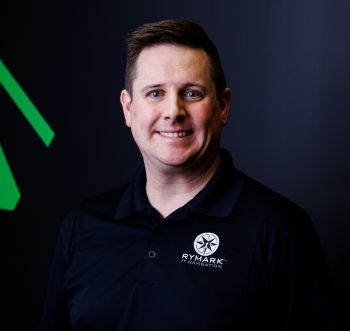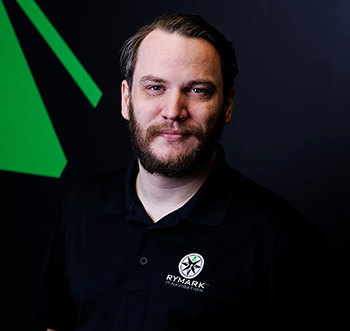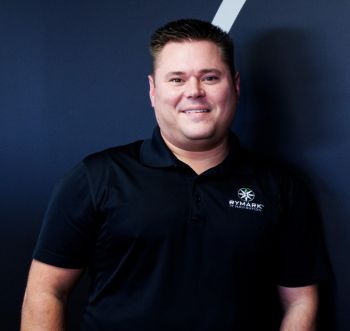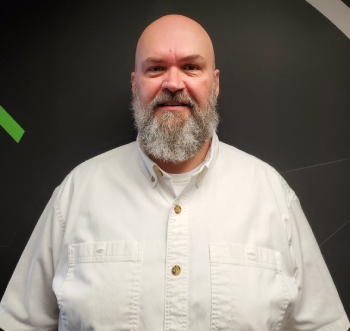Help Desk: (651) 328-8905
Sales Inquiries: (651) 323-1775
Minneapolis IT Support & IT Security Company
At RYMARK IT Navigation, your team of trustworthy IT experts, we provide Minneapolis organizations with reliable, proactive IT support and cybersecurity solutions for seamless operations.
IT Support Specialists You Can Trust
Why Organizations Choose RYMARK IT Navigation
Our core values make the difference
Customer-First Approach
Our proactive, customer-focused culture prioritizes addressing your organization needs, ensuring dependable support with prompt, meaningful responses to keep operations running smoothly.
Problem Solving
As a trusted IT support & IT security company, we use a refined six-step process to effectively tackle any IT challenges, providing solutions that align with your organization's objectives and goals.
Best-Practice Solutions
Committed to integrity, honesty, and openness, we deliver IT solutions grounded in trust, transparency, and respect, building lasting partnerships with our clients.
Peace of Mind
As a leading IT support & IT security company, our advanced security measures protect your organization from cyber threats, allowing you to focus on success while we safeguard your digital assets.
Team Players
With a collaborative spirit, we uphold high standards and bring out the best in each other, passionately striving to exceed every goal.
Protect your organization from CYBER ATTACKS
Download RYMARK’s Free Security Audit Guide to See How Your Organization's Security Stacks Up.
Security Threats Are Everywhere
With new threats developing every day, it can be impossible to stay ahead of the bad guys and keep your business assets protected.
Email, social media, websites, viruses, malware, web applications, weak passwords, unsecured networks, ex-employees—the list goes on.
Without the right security measures, your assets are susceptible to theft, destruction, or ransom which can lead to lost productivity, irreparable damage to your reputation, and even put you out of organization.
Let RYMARK IT Navigation, your trusted Minneapolis IT Support & IT Security Company help you with our cybersecurity services!
The IT Support Specialists You Can Trust
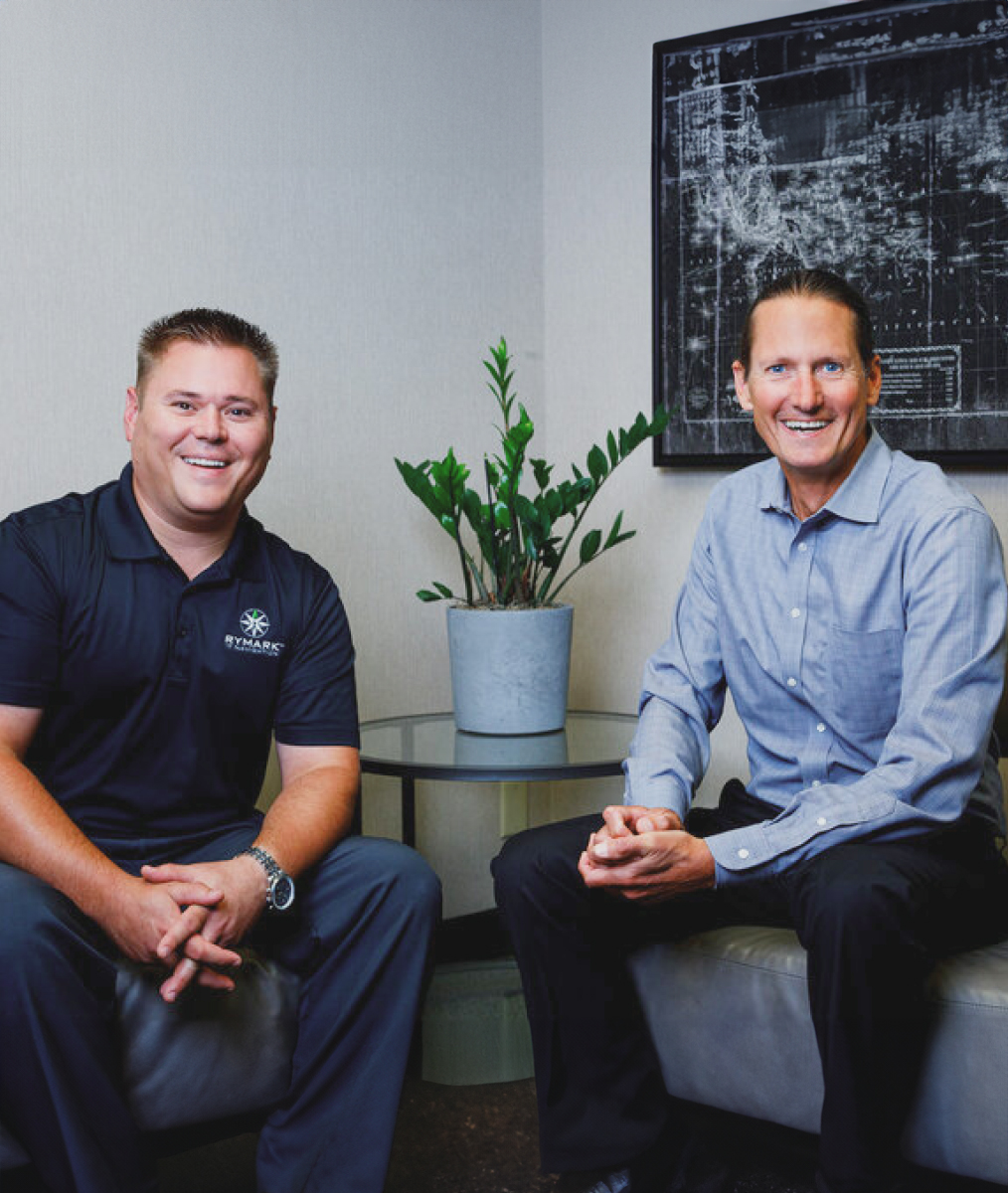
Mark Sommerfeld & Ryan Chester
Managing Partners
We Help You Navigate the Rough Waters of IT Security
As business owners for more than 25 years, we understand the commitment you’ve made and the importance of protecting the organization you’ve worked so hard to build. The experts at RYMARK IT Navigation, your trusted Minneapolis IT Support & IT Security Company, are continually evaluating the latest threats and security measures to protect, detect, and respond to them. We provide solutions that both protect your organization's assets and enable your employees to work more efficiently.
Feel like you’ve been down this road before?
Let us assure you that we place our priority on client relationships, not on turning a high profit. We’re here to maximize your current IT infrastructure, not drain your bank account. We’ll likely even lower your IT costs rather than raise them.
Call (651) 323-1775 today to schedule your appointment. We’re ready to start important IT conversations with organizations just like yours.
How Can We Help?
Our Services
Managed IT
We’ll manage all of your IT services for a flat-rate fee.
Cybersecurity
Comprehensive protection against evolving digital threats to safeguard your organization.
IT Projects
Expert planning and execution of IT solutions tailored to your needs.
Network Security
Safeguarding your network effectively from unauthorized access and cyber threats.
Endpoint Patching & Critical Update Management
Ensuring devices stay secure with timely updates and patches.
Password & Multi-Factor Authentication Management
Strengthening access controls with secure authentication solutions.
Email Security
Protecting your email communications from phishing and malware attacks.
Backup & Disaster Recovery
Never worry again about losing your data in the event of any disaster.
Security Awareness Training
Educating employees to recognize and prevent cybersecurity threats.
Endpoint Protection, Detection & Response
Proactive defense against endpoint threats with real-time monitoring.
24/7/365 SOC
Continuous monitoring and swift response to threats by a dedicated security team.
Help Desk Support
Reliable, expert assistance for all your IT issues, anytime you need it.
How Vulnerable Is Your Company to Cyber Attacks?
These 9 questions can help you evaluate how vulnerable your company is and where you can improve.
Your Security and Peace of Mind Starts Here
As an IT support & IT security company, we help you stay ahead of cyber criminals, stay ahead of your competition, reduce IT distractions, and experience the peace of mind that comes with the confidence that you’re protecting your organization.
We value you and your organization. With this in mind, we have established these promises to every client.
Our Service Level Agreement
Customer Satisfaction Guarantee
Monthly/Quarterly Updates & Reports
No Hidden Costs
Clear Plan & Expectations
What Clients Say About Us
Business Technology Insights
Explore expert insights, trends, and expert advice on the ever-evolving landscape of information technology. Dive in to discover how we leverage cutting-edge solutions to empower organizations and drive innovation.

Heatwave Tech Tips: Preventing Overheating and Extending Device Lifespan
Summer sunshine is great for beach days and barbecues. But it’s not so great for your tech. Whether you’re working from a sunny patio or traveling with your devices, rising temperatures can quietly ta... ...more
Cyber Security
July 07, 2025•5 min read

How AI Is Supercharging Cyber Threats This Summer
Long days and warm nights make summer the perfect time to unplug and unwind. But while you’re kicking back, cybercriminals are ramping up. And this year, they’ve got a powerful sidekick: artificial in... ...more
Cyber Security
June 30, 2025•4 min read

Is Your Data Safe? Backup and Recovery Tips for a Safer Summer
Summer is all about travel, sunshine, and stepping away from the daily grind. But while you’re making memories, your devices may be more vulnerable than you realize. ...more
Cyber Security
June 09, 2025•4 min read
Frequently Asked Questions
What are IT security services?
IT security services encompass measures and practices to protect your systems, networks, and data from potential threats. These services include but are not limited to network security, data encryption, access controls, vulnerability assessments, penetration testing, and incident response.
What are managed IT service providers?
Managed IT service providers (MSPs) are companies that remotely manage a organization's IT infrastructure and services, such as network management, cybersecurity, and data backup, on a subscription basis. They help organizations streamline operations, reduce costs, and ensure IT systems run efficiently.
What are the benefits of cybersecurity services?
IT security services encompass measures and practices to protect your systems, networks, and data from potential threats. These services include but are not limited to network security, data encryption, access controls, vulnerability assessments, penetration testing, and incident response.
What services does RYMARK offer to organizations in Minneapolis?
We provide a range of services, including Managed IT Services, IT Projects, Cybersecurity Services, Network Monitoring and Management, Backup and Disaster Recovery Services, Vendor Management, CTO and Strategic IT Consulting, Work-from-Home Support, IT Relocation Services, and more.
How can Managed IT Services benefit my business?
Managed IT Services offer proactive management of your IT infrastructure, ensuring optimal performance, minimizing downtime, and allowing you to focus on core business activities.
What industries does RYMARK specialize in serving?
We cater to various industries, including Non-Profit Organizations, Religious Organizations, Schools and Education, Financial Service Organizations, Manufacturers, Legal Industry, Construction, and Professional and Government Services.
How does RYMARK ensure the security of our IT infrastructure?
We conduct comprehensive IT security assessments to identify vulnerabilities and implement robust security measures, including employee training, to safeguard your IT infrastructure.
What is an IT security assessment, and why is it important?
An IT security assessment evaluates your IT infrastructure to identify vulnerabilities and potential threats, providing a roadmap to enhance your organization's security posture.
How can we protect our organization from phishing attacks?
Implementing multi-factor authentication, using strong passwords, and conducting regular employee training on recognizing phishing attempts are effective strategies to protect against such attacks.
What steps can we take to improve our network security?
Regular network assessments, implementing firewalls, ensuring up-to-date antivirus software, and conducting employee training are crucial steps to enhance network security.
How does RYMARK support remote work solutions?
We offer Work-from-Home Support services, ensuring secure and efficient remote work setups for your employees.
What should we do if we experience a data breach?
Contact our IT support team immediately. We provide Backup and Disaster Recovery Services to help you respond effectively to data breaches and minimize potential damage.
How can we ensure compliance with industry regulations?
Our IT Security and Support services include assessments and employee training to help your organization comply with relevant industry regulations and standards.
At RYMARK, we believe in using our expertise to strengthen not only businesses, but also the communities they serve. That’s why we’re a proud member of Get Support, Give Support, a nationwide initiative that brings together IT providers to offer free technology services to nonprofits making a difference locally.
For every new client that signs up for our managed IT services, we donate remote monitoring agents to a nonprofit organization in our community. These tools help charities secure, manage, and optimize their IT environments, without adding to their overhead, so they can focus fully on their missions.
Whether it’s helping a shelter stay connected or enabling an education nonprofit to operate more efficiently, this initiative allows us to turn everyday business into tangible, lasting impact.
Because when nonprofits have the right tech support, they can do what they do best: change lives.
Let RYMARK eliminate your IT security & IT support obstacles
Spend less time on IT problems and more time growing your organization. Let’s get to know each other and determine how our partnership could grow. With us on your side, develop customized security plans, stronger communication strategies, and a better plan for the future.
Call (651) 323-1775 today or fill out the form below to schedule your appointment. We’re ready to jumpstart your IT journey.



